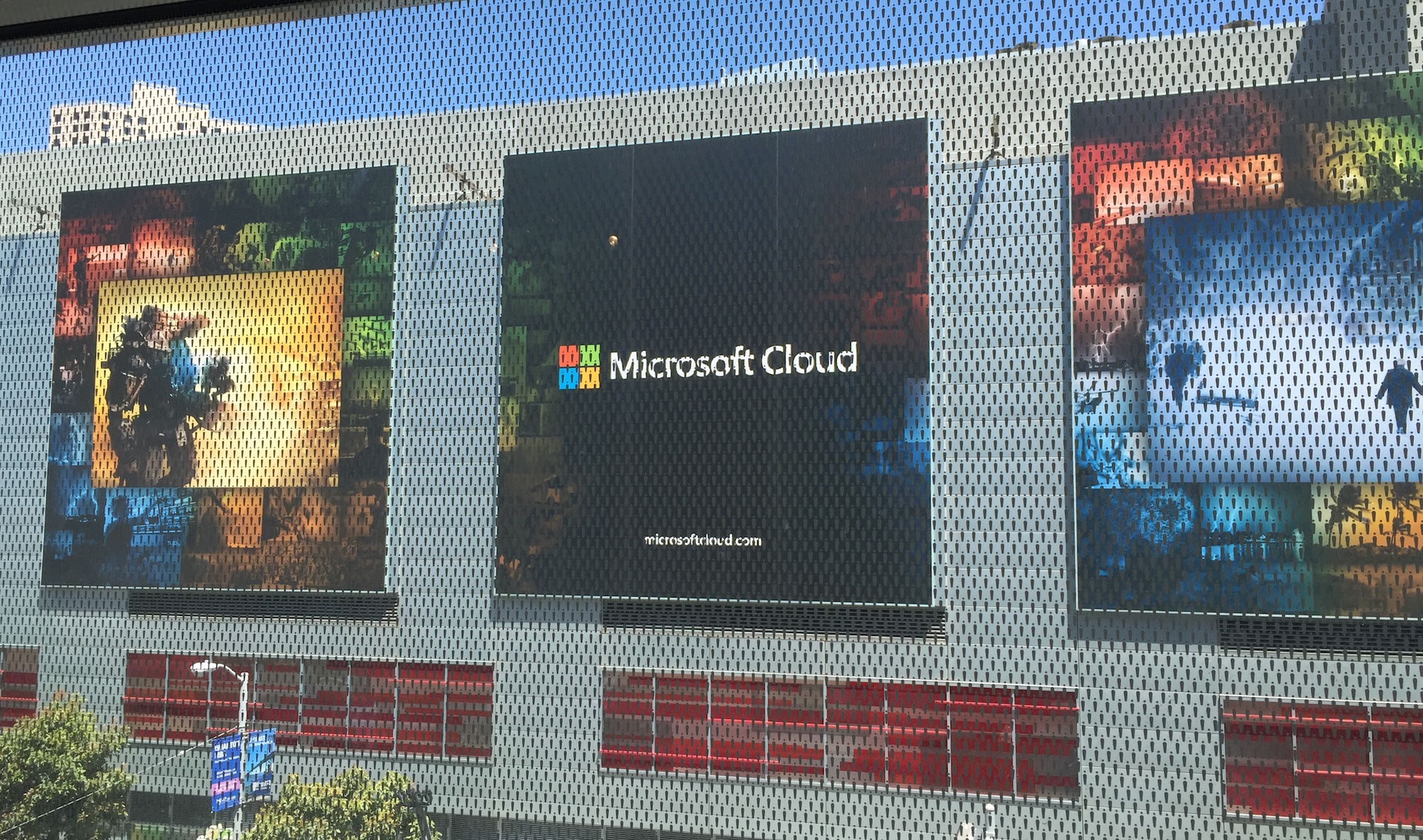
I’m a keen observer of what phones people use. It’s a side effect of my work, of course, but I’ve always been curious about what technology others choose to outfit themselves with. These amazing pieces of metal and glass are merely objects without the users that pick them up, personalize them and make them meaningful.
When I travel to developer conferences, usage share among the attendees is generally aligned with the hosting company. At WWDC, you’d be hard-pressed to find an Android in the entire building. At Google I/O, most developers carry an Android smartphone, though many also carry iPhones.
The last time I attended Build was at Microsoft’s campus in Redmond, Washington back in November, 2012. It rained a lot, and Microsoft built a massive white tent on a grassy section of its 500-acre grounds, during which then-CEO Steve Ballmer jumped around and shouted stuff I can’t remember, but it was most likely developer-friendly and about how much potential Windows 8 had.
Back then, Microsoft was trying every possible way to get developers to create apps for both Windows and Windows Phone. Its insular community meant that rabid Softies were the ones espousing the virtues of the company, but in a relatively constrained vacuum.
Today, Build is hosted in San Francisco, at the same Moscone West conference centre where Google and Apple hold their own annual conferences. It’s an appropriate maneuver for a company that has transitioned away from building an operating system for computers, one that espouses the virtues of Windows next to the benefits of Android and iOS.
That transition has manifested in the types of developers it attracts to Build. I spoke to a number of them at the conference, many of whom are loyal to Windows and Windows Phone, but carry an iPhone or Android in another pocket because, as one told me, “the apps just go there.”
“Microsoft’s willingness to abstract its core competencies is fuelling its rebirth.”
As Microsoft increasingly becomes a services company, one where developers can easily use its tools to create and deploy apps across every platform, the loyalty to its end user products has waned, while brand value has only grown. This lack of homogeneity has not just improved perception of Microsoft as a company, but has fostered better relationships between developers themselves, who see Redmond as a virtuous partner on the road to cross-platform promotion. Certainly, Microsoft wants them to create universal Windows 10 apps, but, at least on the surface, it appears satisfied to see its backend services like Azure, as well as subscriber-based services like Office, used everywhere – anywhere. Microsoft’s willingness to abstract its core competencies is fuelling its rebirth.
One developer I spoke to said that Microsoft appears to be recognizing its place in the equilibrium of the internet. It’s no longer important to emphasize that Cortana is powered by Bing, because Cortana happens to be the layer on which most people interact with Bing. Conversely, it understands that Internet Explorer was poison, and that to have a place on Windows users’ desktops it needed a fundamental revisiting of its browser strategy. This enormous Microsoft is becoming more nimble by admitting where it is strong, and falling back willingly where it isn’t.
This is a familiar story, and one that BlackBerry, Sony, HTC and others are navigating in their own ways, some more successfully than others. Microsoft has the advantage of having a fairly robust position in nearly every layer of the internet, and works with partners to build its hardware presence. BlackBerry, Sony and HTC have to take that road alone (though the latter does build Windows Phones); all are subject, in one way or another, to the whims of the market.
A few years ago, in the depths of Windows 8 despair, it was difficult to find a positive spin to Microsoft’s narrative. It was in pulling back from the need to be at the centre of it that the company emerged better – better than perhaps it ever has been.


